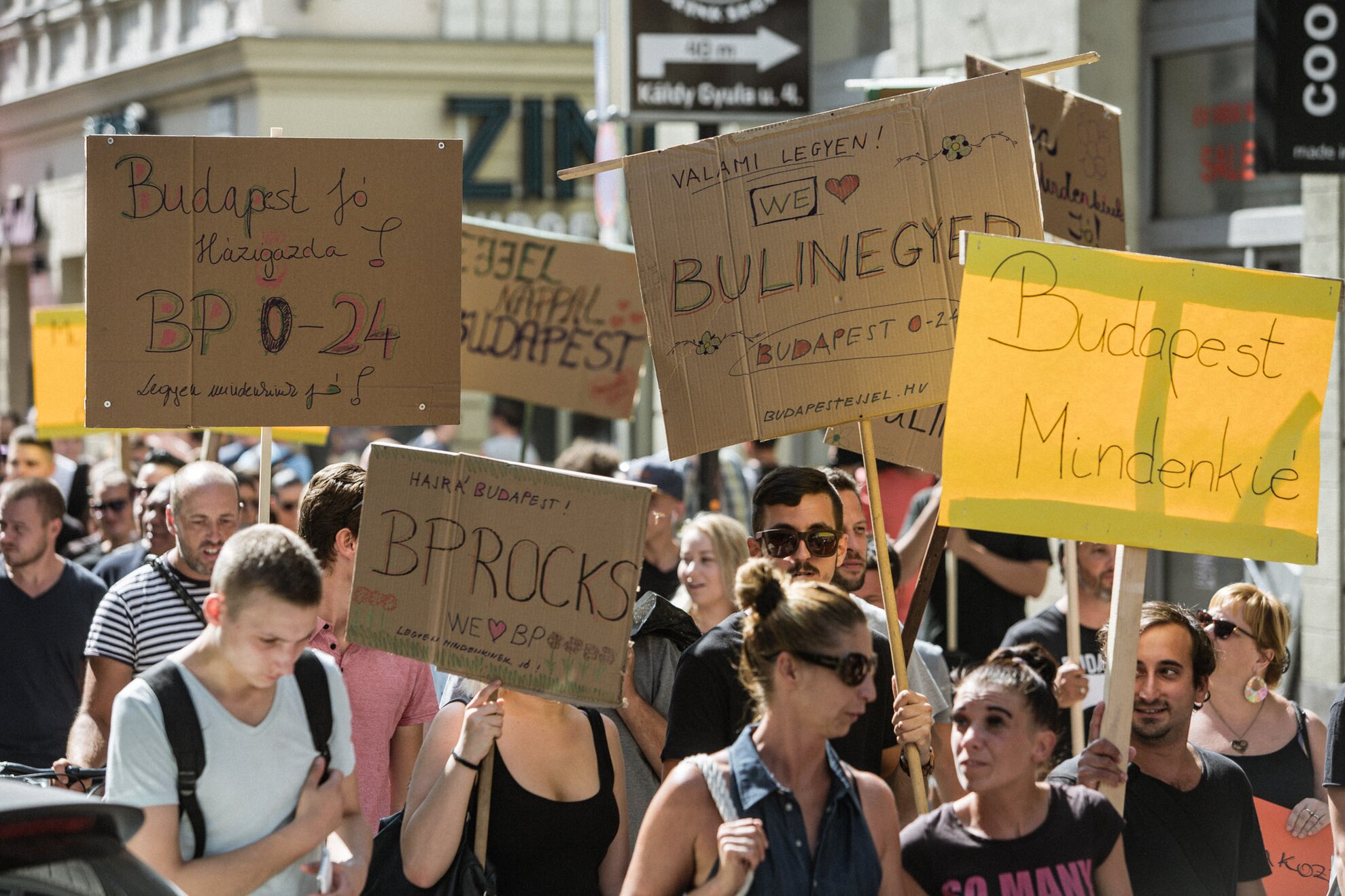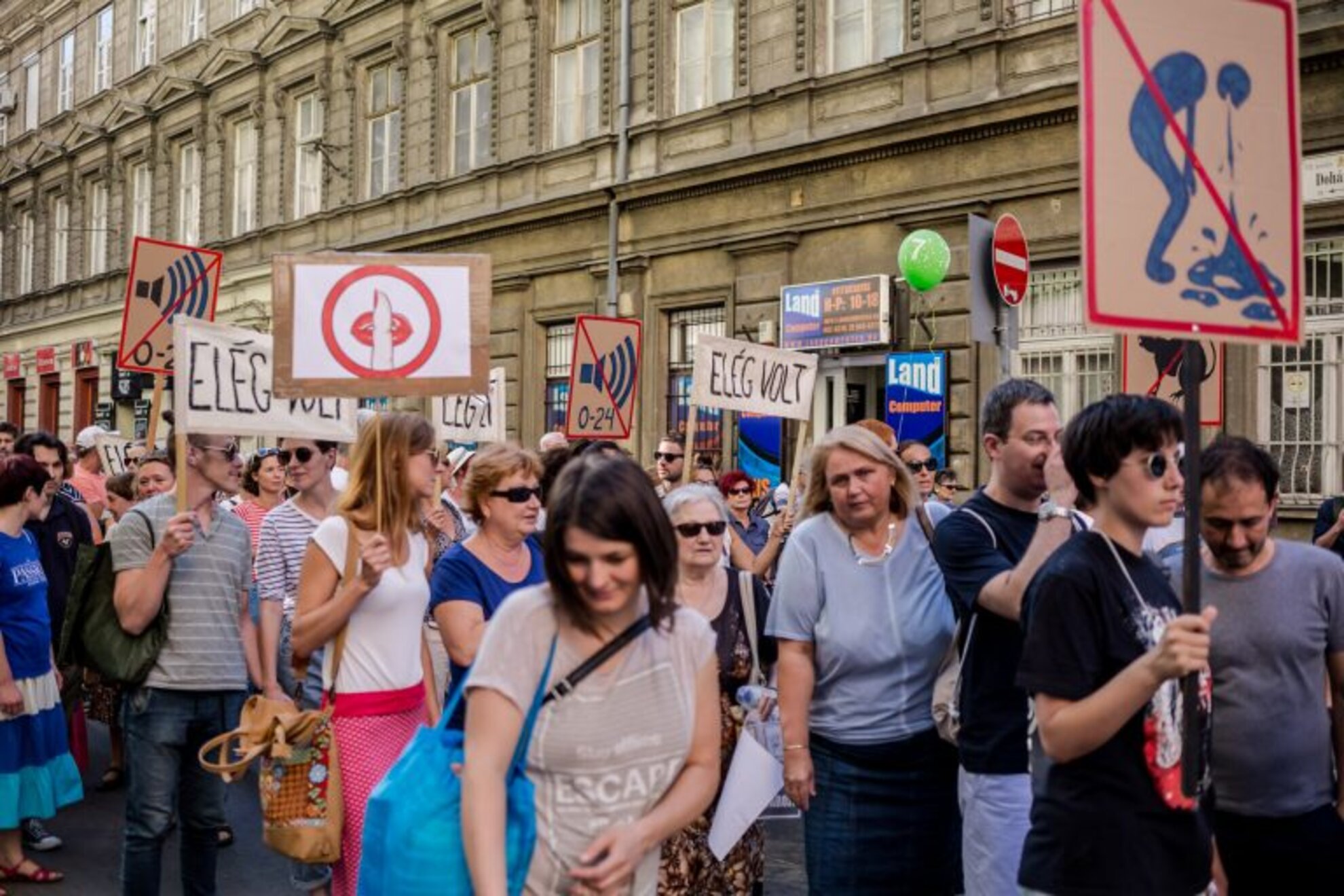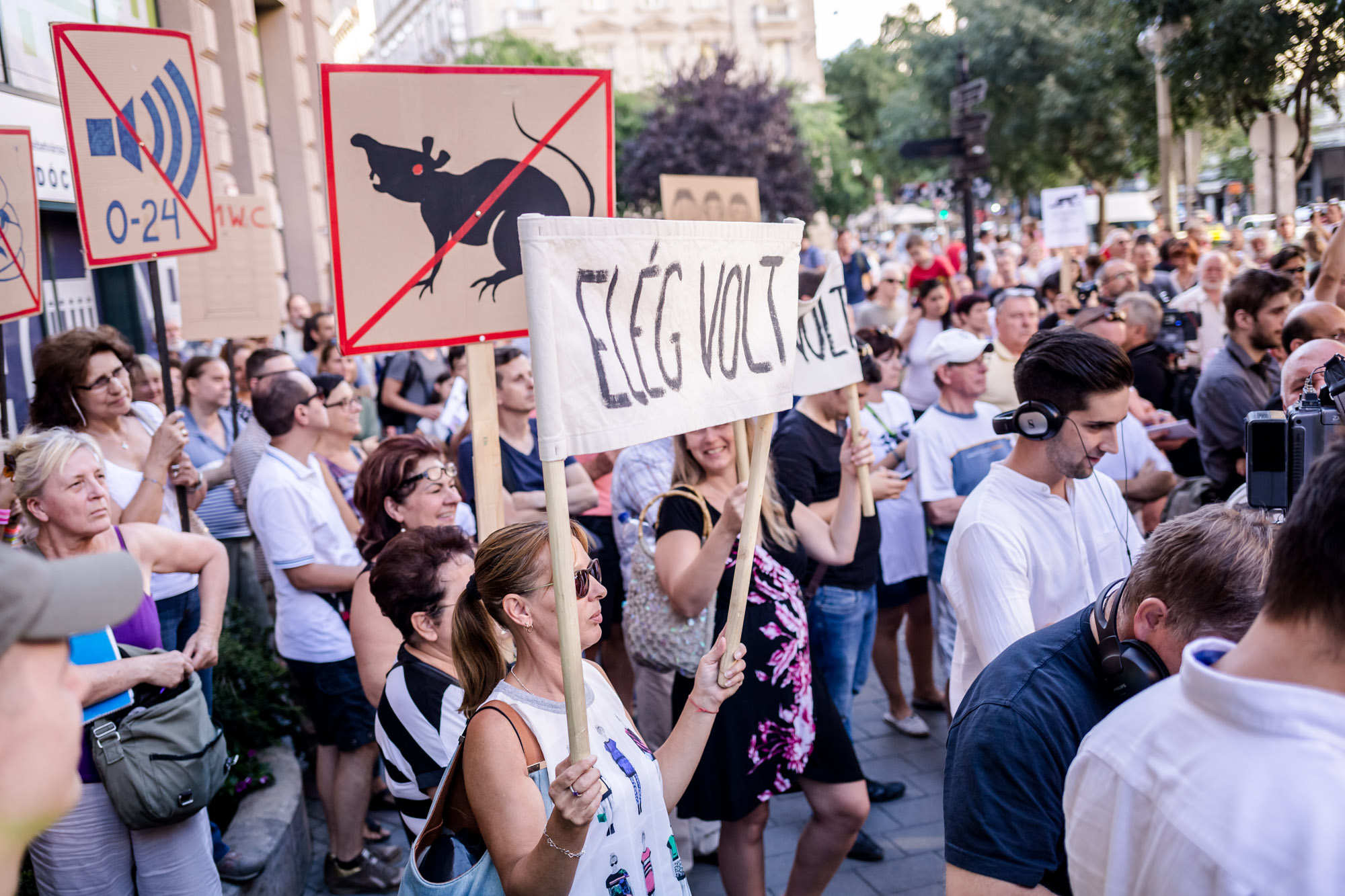This outcome is not surprising. While the referendum would have introduced noise restrictions within the party vortex of Rákóczi út, Károly körút, Király utca and Erzsébet körút, most residents of District VII actually live outside the Grand Boulevard and therefore are less affected by the issues. Outside the Grand Boulevard, noise restrictions were introduced in 2013.
Currently in Budapest, inner District VII is pretty much the last neighborhood where pubs can stay open until 6am. This makes it the city’s party quarter, attracting huge crowds of loud fun seekers who often leave the streets in a poor state. A few months ago, embittered residents raised their voices and formed a highly active NGO (Élhető Erzsébetváros) to resolve the issue, forcing bar owners to defend their livelihoods. Both sides have held street protests. This ultimately led to the referendum.
Improvements in the district have been made, but the most crucial question remains, the introduction of a noise regulation that would limit opening hours in Erzsébetváros to midnight. We have previously scrutinized this issue in an article addressing both sides. Bar owners think that a noise regulation would wreck Budapest’s tourism and would have crucial consequences on the livelihoods of owners, even those keen on conflict-free compromise who run more sophisticated hangouts in the district. On the other hand, residents have had enough of the excessive noise and sundry street waste, and would like to have a smarter neighborhood that people don’t use as their dumping ground.
The referendum was held yesterday as an answer to these raised voices, aiming to resolve the issue once and for all. However, not even nearly enough people turned out to vote; out of a local electorate of43,000, only about 4,500 voted for the noise regulation – and 6,918 people voted in total.
After the ballot boxes closed, the NGO of bar owners offered the opinion that the numbers show that not even a majority of those who live in the heart of the district turned up. Therefore, claims the NGO, this proves that a majority of residents do not agree with the introduction of a noise regulation.

On the other hand, the spokesman of the Élhető Erzsébetváros Facebook group, Dóra Garai, thinks that this result is a huge success as this outcome was reached without strong financial backing and despite manipulation. She said that the result “clearly and obviously reflects the wishes of residents”. According to Garai, the low turnout is down to the failings of the district council, as residents were not properly notified about the referendum.

The future of this issue remains unsure. While an invalid referendum does not bind the council to do anything, its leading politicians have expressed their willingness to act upon the wishes of residents and would initiate a new law that would improve living conditions and general safety. Midnight closure would indeed resolve a number of issues in District VII, but many would lose their jobs and Budapest would become a less-appealing tourist attraction.




